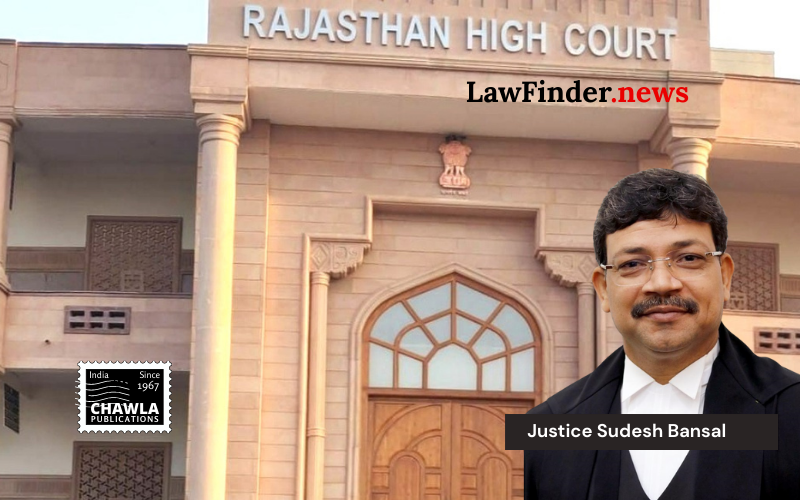Rajasthan High Court Upholds ACB's Jurisdiction Over Corruption Cases Involving Central Government Employees. Court clarifies concurrent powers of ACB alongside CBI in investigating corruption within state boundaries
In a landmark judgment, the Rajasthan High Court has affirmed the jurisdiction of the Anti-Corruption Bureau (ACB) of Rajasthan to investigate cases of bribery and corruption involving Central Government employees within the state’s territorial boundaries. The court ruled that the ACB possesses concurrent and co-extensive powers with the Central Bureau of Investigation (CBI) to conduct investigations under the Prevention of Corruption Act, 1988, when the cause of action arises in Rajasthan.
Justice Sudesh Bansal, presiding over the case of Mukesh Singh v. State of Rajasthan, addressed crucial legal questions concerning the authority of the ACB versus the CBI. The petitions raised by the accused argued that only the CBI had exclusive jurisdiction to investigate corruption cases involving Central Government employees, contending that the ACB must seek prior approval or consent from the CBI before proceeding.
The court, however, dismissed these arguments, emphasizing that neither the Prevention of Corruption Act nor the Delhi Special Police Establishment Act bars the ACB's jurisdiction. It clarified that administrative guidelines in the Crime Manuals of the CBI and ACB are intended to facilitate coordination and avoid duplication but do not have statutory force to exclude ACB’s jurisdiction.
Justice Bansal underscored that the ACB is authorized to register and investigate corruption cases against Central Government employees, especially when immediate action is necessary to prevent destruction of evidence or in trap cases where an employee is caught red-handed. The judgment asserted that procedural delays and technicalities should not undermine the statute’s intent to curb corruption effectively.
The court also distinguished its ruling from the Supreme Court's decision regarding the jurisdiction of the ACB in the National Capital Territory of Delhi, noting that the constitutional status and legislative powers of Rajasthan differ significantly, allowing the ACB to retain its investigatory powers within the state.
This decision reinforces the concurrent jurisdiction of state agencies like ACB with the CBI, ensuring robust mechanisms against corruption involving public servants, irrespective of their affiliation with the Central Government. The judgment is expected to bolster the accountability and efficiency of anti-corruption measures within Rajasthan.
Bottom Line:
Jurisdiction of Anti-Corruption Bureau (ACB) of Rajasthan is not barred nor excluded from investigating cases of bribery and corruption against Central Government employees under the Prevention of Corruption Act, 1988, if the cause of action arises within the territorial boundaries of Rajasthan.
Statutory provision(s): Prevention of Corruption Act, 1988 - Sections 17 and 17A, Delhi Special Police Establishment Act, 1946 - Section 5
Mukesh Singh v. State of Rajasthan, (Rajasthan)(Jaipur Bench) : Law Finder Doc Id # 2788730




